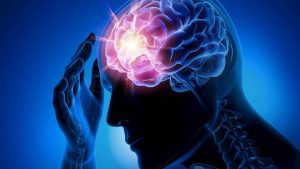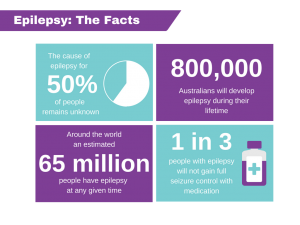Epilepsy is a neurological(central nervous system) disorder and also known as a seizure disorde![]() r.
r.

Epilepsy is a chronic disorder, A disorder in which nerve cell activity in the brain is disturbed, causing seizures. Seizures is a sudden, uncontrolled electrical disturbance in the brain. It can cause changes in behavior,

movements or feelings, and in levels of consciousness. If you have two or more seizures, you have epilepsy. Epilepsy could happen in early childhood and after the age 60, it could inheritance, by a head injury, strokes could also trigger epilepsy.
Impacts of Epilepsy on individuals can be During a seizure, a person experiences :
- Temporary confusion
- A staring spell
- Uncontrollable jerking movements of the arms and legs
- Loss of consciousness or awareness
- Also patient will face fear, anxiety or deja vu (the feeling that one has lived through the present situation before.)
Impact of Epilepsy on Social:
Epilepsy can put a strain on families in many ways. Everyone is in it together. Yet they experience it differently. The person who has seizures will feel one way, but a parent or spouse may feel quite differently. Maybe a family member feels helpless as they watch the seizures because they can’t make them stop. Maybe they are angry this is happening to their loved one and their lives have changed. They may be scared and try to protect their family member who has seizures. But the person with seizures may feel overprotected and want some space and independence. They may be afraid they are a burden to their family and pull away.
Techniques can be used to diagnose the disease:
Doctor diagnose by
- Patient medical history – Review signs and symptoms and medical history
- Neurological examination and neuropsychological tests – Check behaviour, assess thinking, memory and speech skills, motor abilities and mental function to determine the type of epilepsy and area of brain affected
- Blood tests – To check for infections, genetic conditions associated with seizures
- Scans – Doctors may run a CT scan, an MRI, a PET scan, a SPECT test and an Electroencephalogram (EEG) test to detect brain abnormalities and seizure epicenter
And other ways to check are by symptoms:
- Temporary confusion.
- A staring spell.
- Uncontrollable jerking movements of the arms and legs.
- Loss of consciousness or awareness.
- Psychic symptoms such as fear, anxiety
System that could be affected :
Epilepsy affects
- Central Nervous System
- Muscular System
- Respiratory System
- The Reproductive System
Tretment are human stem cell-derived neuron transplants reduce seizures in mice, meditation and Anti epileptic Drugs could reduce 70% seuzures.
Economic Impact:
The mean yearly costs (expressed in 1991 prices) of epilepsy-related health care including antiepileptic drug treatment was US $1,594 the year before starting GVG therapy, and US $2959 the first year of GVG treatment including a mean yearly cost of GVG of US $1,572.
Geographical Impacts:
Edoesn’ty dosent have a particular effect on people and i could affet anyone and at an age.